Resources
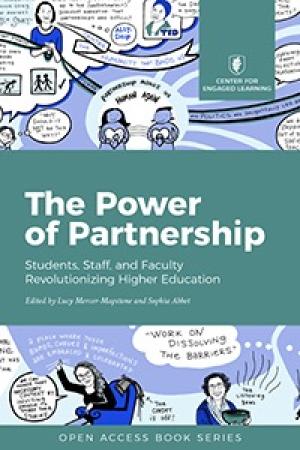
The Power of Partnership celebrates the nuance and depth of student-faculty partnerships in higher education and illustrates the many ways that partnership—the equitable collaboration among students, staff, and faculty in support of teaching and learning—has the potential to transform lives and institutions. The book aims to break the mold of traditional and power-laden academic writing by showcasing creative genres such as reflection, poetry, dialogue, illustration, and essay. The collection has invited chapters from renowned scholars in the field alongside new student and staff voices, and it reflects and embodies a wide range of student-staff partnership perspectives from different roles, identities, cultures, countries, and institutions. (From the Publisher)
Podcast series. Offers insights for amplifying critical thinking in daily life.  This podcast is for anyone who wants to understand the ins-and-outs of how our brains work when it comes to thinking, but it’s also great for educators who want to understand how their student’s brains work!  Smarterer! Is a humorous, short, and immediately useful.  
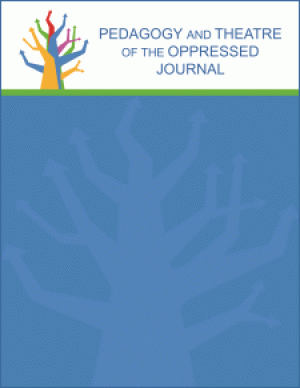
An annual open-access, peer-reviewed journal presenting research papers, literary essays, manifestos, production and book reviews, photo essays and videos, community-based voices and actions, and other hybrid projects that address popular education and liberatory theatre, produced by Pedagogy and Theatre of the Oppressed, Inc. (http://ptoweb.org/)
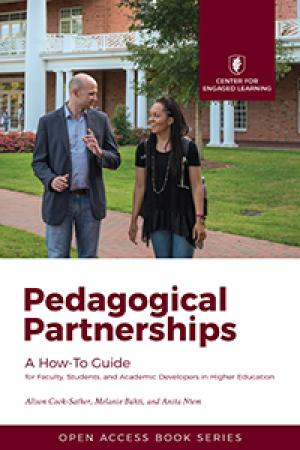
Pedagogical Partnerships and its accompanying resources provide step-by-step guidance to support the conceptualization, development, launch, and sustainability of pedagogical partnership programs in the classroom and curriculum. This definitive guide is written for faculty, students, and academic developers who are looking to use pedagogical partnerships to increase engaged learning, create more equitable and inclusive educational experiences, and reframe the traditionally hierarchical structure of teacher-student relationships. Filled with practical advice, Pedagogical Partnerships provides extensive materials so that readers don’t have to reinvent the wheel, but rather can adapt time-tested strategies and techniques to their own unique contexts and goals. (From the Publisher)
The capstone course is supposed to serve as the final building block of our students’ education. Faculty in the religious studies department at Hendrix College felt the need to supplement the capstone metaphor with an additional one: “springboard.” We wanted to connect with recent trends in higher education that help students understand the ways in which they are prepared for employment and for life. To this end, we developed a senior colloquium course that integrates the various educational experiences of the students and, in partnership with our career services department, springboards them into their future lives. This article explains the process we went through and the three content areas covered in the course: intellectual autobiography, career preparation, and the research project.
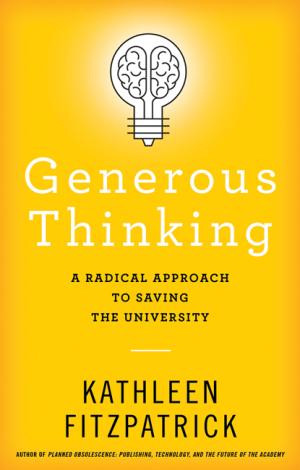
Higher education occupies a difficult place in twenty-first-century American culture. Universities—the institutions that bear so much responsibility for the future health of our nation—are at odds with the very publics they are intended to serve. As Kathleen Fitzpatrick asserts, it is imperative that we re-center the mission of the university to rebuild that lost trust. In Generous Thinking, Fitzpatrick roots this crisis in the work of scholars. Critical thinking—the heart of what academics do—can today often negate, refuse, and reject new ideas. In an age characterized by rampant anti-intellectualism, Fitzpatrick charges the academy with thinking constructively rather than competitively, building new ideas rather than tearing old ones down. She urges us to rethink how we teach the humanities and to refocus our attention on the very human ends—the desire for community and connection—that the humanities can best serve. One key aspect of that transformation involves fostering an atmosphere of what Fitzpatrick dubs "generous thinking," a mode of engagement that emphasizes listening over speaking, community over individualism, and collaboration over competition. Fitzpatrick proposes ways that anyone who cares about the future of higher education can work to build better relationships between our colleges and universities and the public, thereby transforming the way our society functions. She encourages interested stakeholders to listen to and engage openly with one another's concerns by reading and exploring ideas together; by creating collective projects focused around common interests; and by ensuring that our institutions of higher education are structured to support and promote work toward the public good. Meditating on how and why we teach the humanities, Generous Thinking is an audacious book that privileges the ability to empathize and build rather than simply tear apart. (From the Publisher)
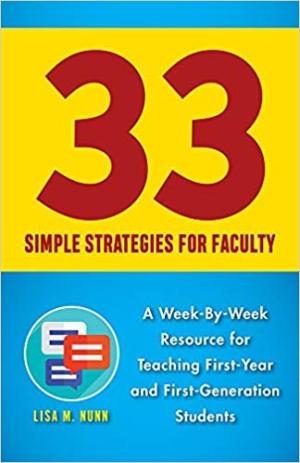
Many students struggle with the transition from high school to university life. This is especially true of first-generation college students, who are often unfamiliar with the norms and expectations of academia. College professors usually want to help, but many feel overwhelmed by the prospect of making extra time in their already hectic schedules to meet with these struggling students. 33 Simple Strategies for Faculty is a guidebook filled with practical solutions to this problem. It gives college faculty concrete exercises and tools they can use both inside and outside of the classroom to effectively bolster the academic success and wellbeing of their students. To devise these strategies, educational sociologist Lisa M. Nunn talked with a variety of first-year college students, learning what they find baffling and frustrating about their classes, as well as what they love about their professors’ teaching. Combining student perspectives with the latest research on bridging the academic achievement gap, she shows how professors can make a difference by spending as little as fifteen minutes a week helping their students acculturate to college life. Whether you are a new faculty member or a tenured professor, you are sure to find 33 Simple Strategies for Faculty to be an invaluable resource. (From the Publisher)
A Harvard University project led by Diane Eck. For over twenty-five years, ongoing research project that engages students in studying the new religious diversity in the United States, exploring particularly the communities and religious traditions of Asia and the Middle East that have become woven into the religious fabric of the United States in the past twenty-five years. Teaching Resources: case studies, research reports, films, images, timelines and more.
A free MOOC from Columbia University that explores the principles of inclusive teaching and how to apply them in your classroom to support diverse learners. 6 weeks long, 2-3 hours per week.
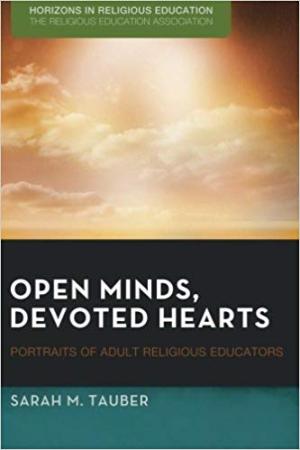
How do religious educators meaningfully engage adult learners? How do they invite adults to begin a learning journey and inspire them to stay on it? In an era of "spiritual but not religious," how can religious educators, and clergy in particular, respond to the yearnings of adults for connection, wholeness, and purpose? Open Minds, Devoted Hearts offers the examples of three outstanding congregational rabbis whose teaching answers that call to action. Through innovatively incorporating biographical portraits and educational scholarship the book provides a comprehensive exploration of how the themes of narrative, transformation, and spirituality bring adult religious educators and learners into a powerful interactive educational process. The portraits and accompanying analysis reveal how constructing personal meaning and building sacred community through study situates adult learning as a dynamic centerpiece of an energized congregational life. (From the Publisher)